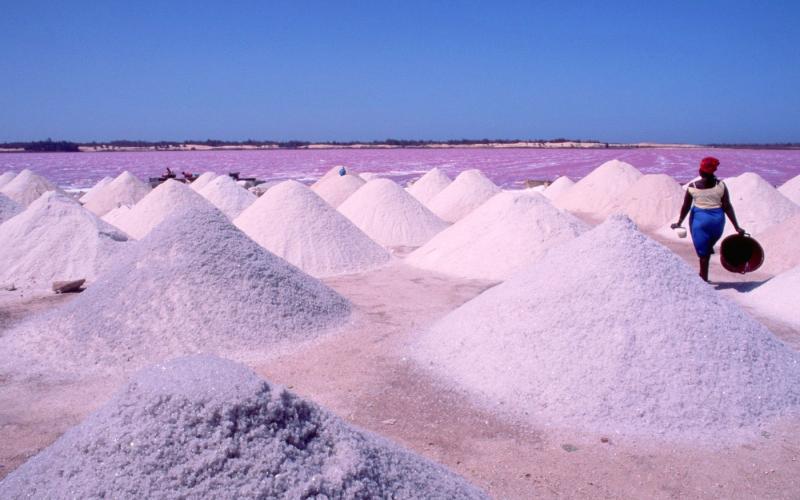Senegal’s renowned Pink lake may be in danger because of floods and incessant rains. The lake with its rich presence of salt was a source of livelihood for a number of families living near the lake and a tourist hub
Senegal’s renowned Pink lake may be in danger because of floods and incessant rains. The lake with a rich presence of salt was a source of livelihood for a number of families living near the lake and a tourist hub. Estimates by the local people, who have formed a cooperative of salt workers put close to 7000 tons of salt was washed away due to inundation of flood waters, which in value terms works out to nearly a quarter of a million dollars, affecting 3000 families living close to the lake and make their living by collecting salt from the lake.
The locals say the lake now has fish now, which means salt concentration has drained off. Fish do not survive in places where there is a high concentration of salt. Rainwater and flood would have reduced the concentration of salt. Salt lake is an important tourist attraction, which a number of people visit every year to study and witness the paradox of nature. If the situation continues, there is a possibility that the lake may lose its uniqueness, affecting the tourist flow, which used to fetch the inhabitants nearby some additional income. The mud water, which is the result of inundation, prevents the salt formation and the lake would lose its uniqueness -the pink colour.
This view was endorsed by the National Agency for Civil Aviation and Meteorology. It said that the exceptional nature of this year’s rainy season is consistent with the findings of the latest report by the UN’s expert panel on climate change. The floods have caused misery to owners of lakefront stores. Their shops were submerged, damaging paintings, masks, wooden knick-knacks, and other souvenirs they sold to tourists. Senegal’s environment minister Alioune Ndoye visited the area in early October and spoke with salt miners and those in the tourism industry.
Read Also:
https://trendsnafrica.com/senegal-mauritania-lng-reserves-hold-key-to-development-of-both-countries/
https://trendsnafrica.com/senegal-to-promote-digital-transformation/
https://trendsnafrica.com/ruling-coalition-wins-narrowly-legislative-election/
Villagers also complain that the water had been pumped into the lake from the suburbs of Dakar, fuelling concern that it carried toxic residues. However, authorities deny that. They claim that no pipelines or drains had been installed and ditches that brought the water into the lake from the surrounding areas had been formed naturally. In the meantime, the Environment Ministry has collected water samples for quality analysis. The result of their study is still awaited.





